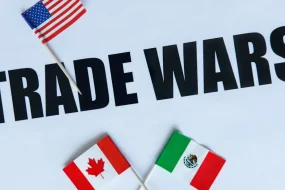The Israel-Hamas conflict has long been a focal point of Middle Eastern geopolitics, but recent developments have intensified global attention. As of August 2024, hostilities have flared anew, leading to significant humanitarian and political repercussions.
Fire and Fury: The Escalation
In the latest round of violence, both Israel and Hamas have engaged in severe military actions. Hamas launched a barrage of rockets into Israeli territory, targeting key cities including Tel Aviv and Jerusalem. In response, Israel conducted extensive airstrikes across the Gaza Strip, aimed at Hamas infrastructure, including tunnels, weapon storage sites, and command centers. The toll on civilians has been heavy, with numerous casualties reported on both sides.
Rocket Attacks and Airstrikes
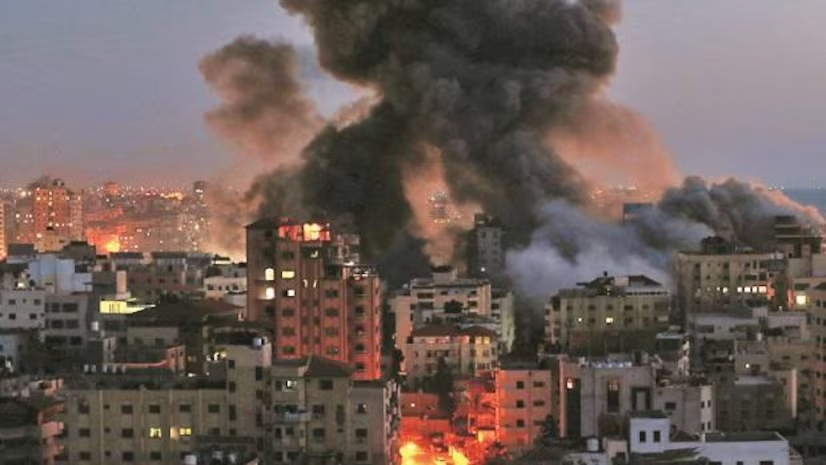
Hamas has fired over 1,000 rockets into Israel since the conflict reignited, prompting the Israeli Defense Forces (IDF) to launch Operation Guardian, a series of counterstrikes aimed at crippling Hamas’ operational capabilities.
Casualties and Displacement
The United Nations reports that hundreds of civilians have been killed, and thousands have been displaced in Gaza due to the ongoing airstrikes. On the Israeli side, rocket attacks have resulted in casualties and significant property damage.
Ceasefire Efforts
Efforts for a ceasefire, mediated by Egypt and Qatar, have been ongoing but with limited success. Both sides have set stringent preconditions, complicating the negotiation process.
Voices from Across the Globe
Global leaders and organizations, including the United Nations, have called for ceasefires and negotiations, while grassroots movements and social media platforms amplify the voices of those directly impacted by the violence. In this multifaceted narrative, we aim to capture a snapshot of the global dialogue, offering insights into the diverse perspectives that shape the discourse on the Israel-Hamas war.
United States
The United States has reiterated its staunch support for Israel’s right to self-defense. President Joe Biden has condemned Hamas’ rocket attacks, labeling them as acts of terrorism. However, the U.S. administration has also expressed concern over the rising civilian casualties in Gaza, urging Israel to ensure its military operations minimize harm to civilians.
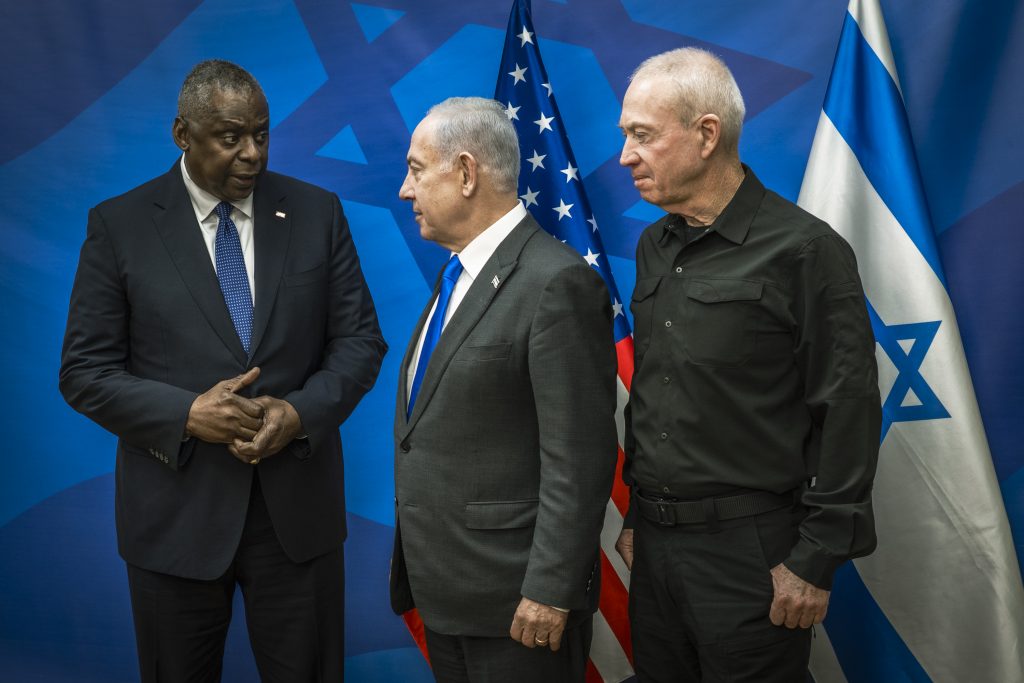
Secretary of Defense Lloyd J. Austin III meets with Israeli Prime Minister Benjamin Netanyahu and Minister of Defense Yoav Gallant in Tel Aviv, Israel, Oct. 13, 2023. Austin traveled to the country to meet with Israeli leaders face-to-face and underscore the unwavering support of the U.S. for the people of Israel and commitment to ensuring Israel has what it needs to defend itself. (DoD photo by Chad J. McNeeley)
The U.S. has engaged in diplomatic efforts to broker a ceasefire, working closely with regional partners and international organizations.
“The United States unequivocally condemns the actions of Hamas. We support Israel’s right to defend itself against these acts of terror and violence.” – President Joe Biden.
Secretary of State Antony Blinken has been in frequent contact with both Israeli and Palestinian leaders, advocating for de-escalation and the resumption of peace talks.
Russia
Russia’s stance on the conflict has been more nuanced. The Kremlin has called for both sides to exercise restraint and cease hostilities immediately. Russian President Vladimir Putin has emphasized the importance of addressing the underlying issues driving the conflict, particularly the humanitarian crisis in Gaza and the broader Palestinian-Israeli dispute.
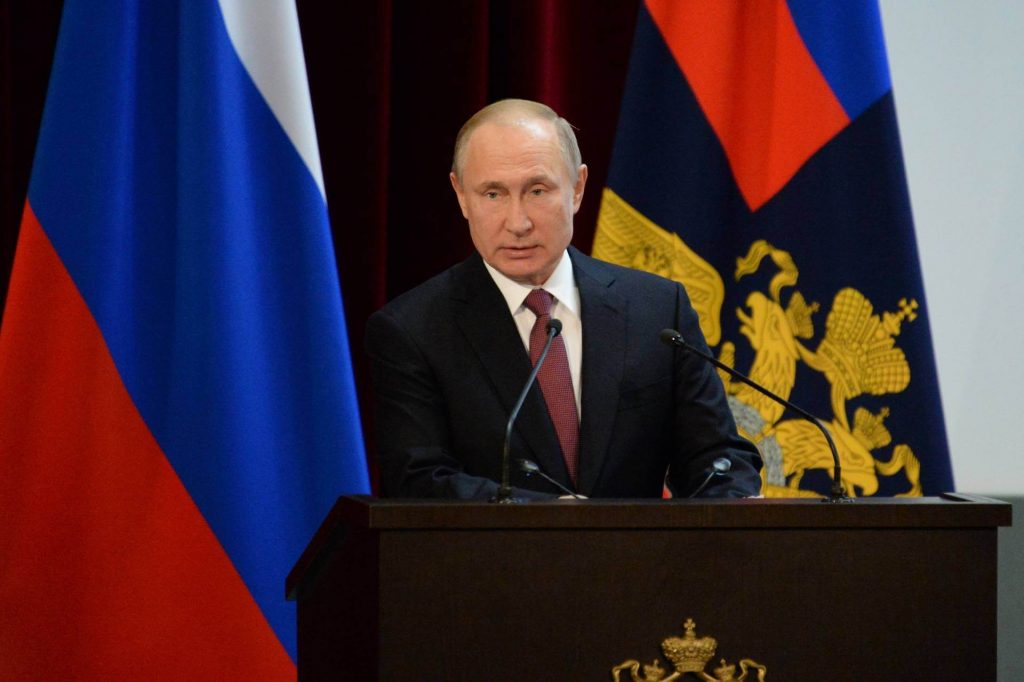
“We call for both Israel and Hamas to de-escalate and engage in dialogue. The loss of civilian lives on both sides is unacceptable.” – President Vladimir Putin.
Russia has offered to mediate peace talks, positioning itself as a potential neutral party. This move is seen as part of Russia’s broader strategy to increase its influence in Middle Eastern affairs. Russian Foreign Minister Sergey Lavrov has criticized what he describes as the West’s one-sided support for Israel, calling for a more balanced approach to achieving lasting peace.
European Union
“The EU calls for an immediate ceasefire and urges both sides to stop the violence. We recognize Israel’s right to self-defense, but this must be proportional and in accordance with international law.” – High Representative Josep Borrell.
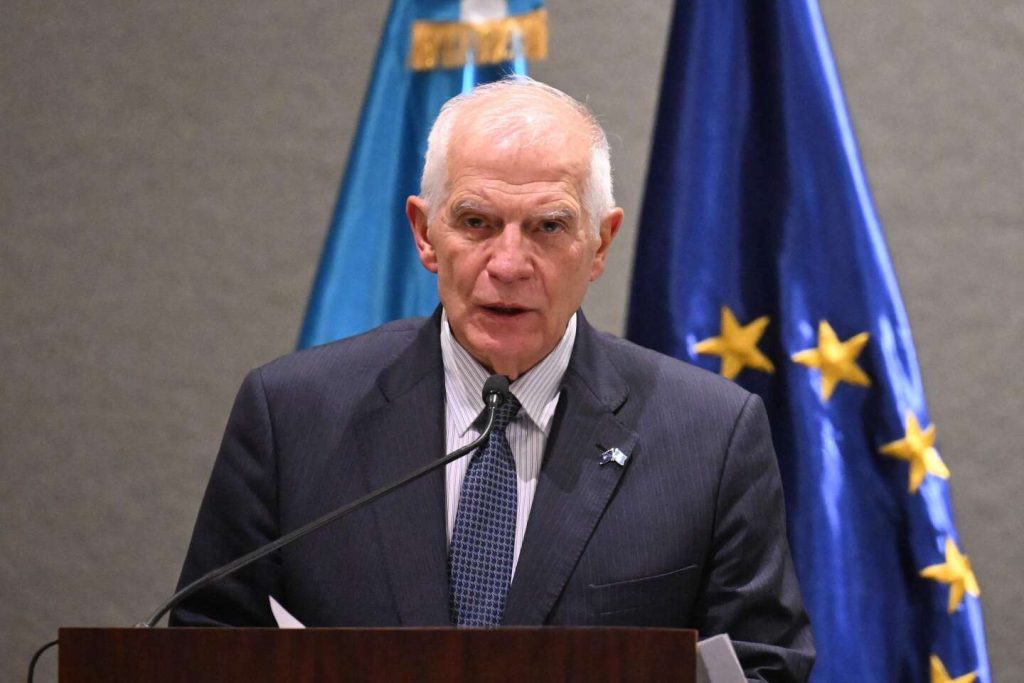
European Union High Representative for Foreign Affairs and Security Policy Josep Borrell speaks during a joint press conference with Guatemalan President-elect in Guatemala City on January 13, 2024. (Photo by Johan ORDONEZ / AFP)
The European Union has condemned the violence and called for an immediate ceasefire. The EU’s High Representative for Foreign Affairs, Josep Borrell, has stressed the need for both sides to return to the negotiating table. The EU has also pledged additional humanitarian aid for Gaza, aiming to alleviate the suffering of civilians caught in the conflict.
Middle Eastern Nations
Reactions from Middle Eastern countries have varied. Egypt and Jordan, which have peace treaties with Israel, have called for restraint and an end to the violence. Both countries have played key roles in mediating ceasefire talks.
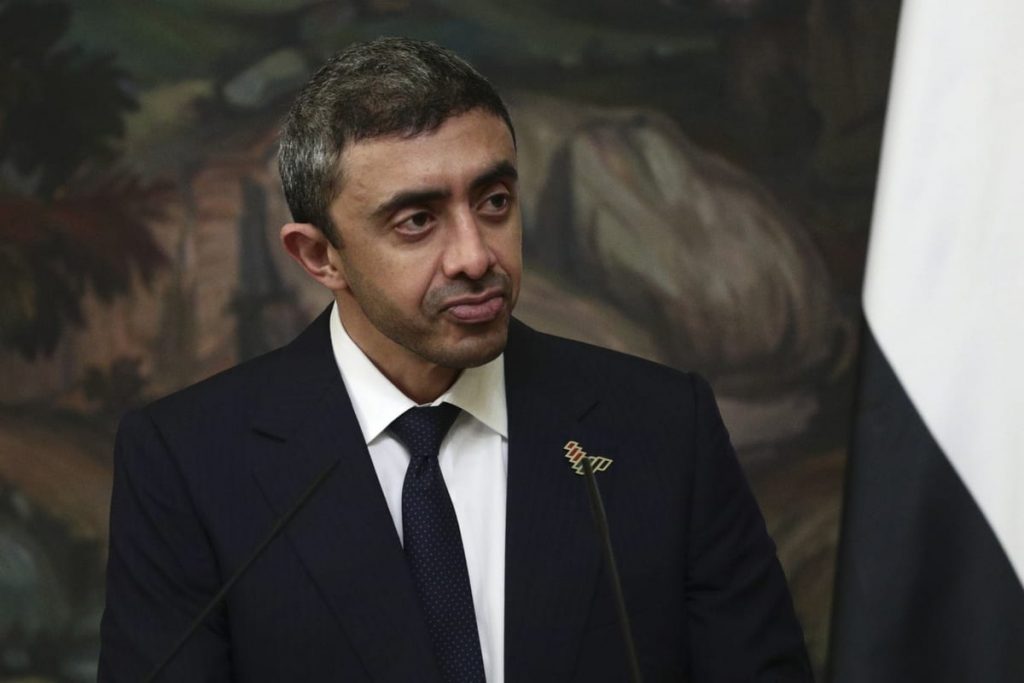
“The UAE expresses deep concern over the escalating violence in Israel and Palestine. We condemn the targeting of civilians and call for an immediate cessation of hostilities. We urge all parties to engage in dialogue and work towards a peaceful resolution in accordance with international law.” – Ministry of Foreign Affairs and International Cooperation (United Arab Emirates).
Saudi Arabia and the United Arab Emirates have condemned the Israeli airstrikes and expressed solidarity with the Palestinian people. Meanwhile, Iran has voiced strong support for Hamas, with its leaders calling for continued resistance against what they describe as Israeli aggression.
Humanitarian Catastrophe
The humanitarian impact of the renewed conflict is dire. Hospitals in Gaza are overwhelmed with casualties, and there are critical shortages of medical supplies. The blockade of Gaza has exacerbated the situation, limiting the flow of essential goods and aid.
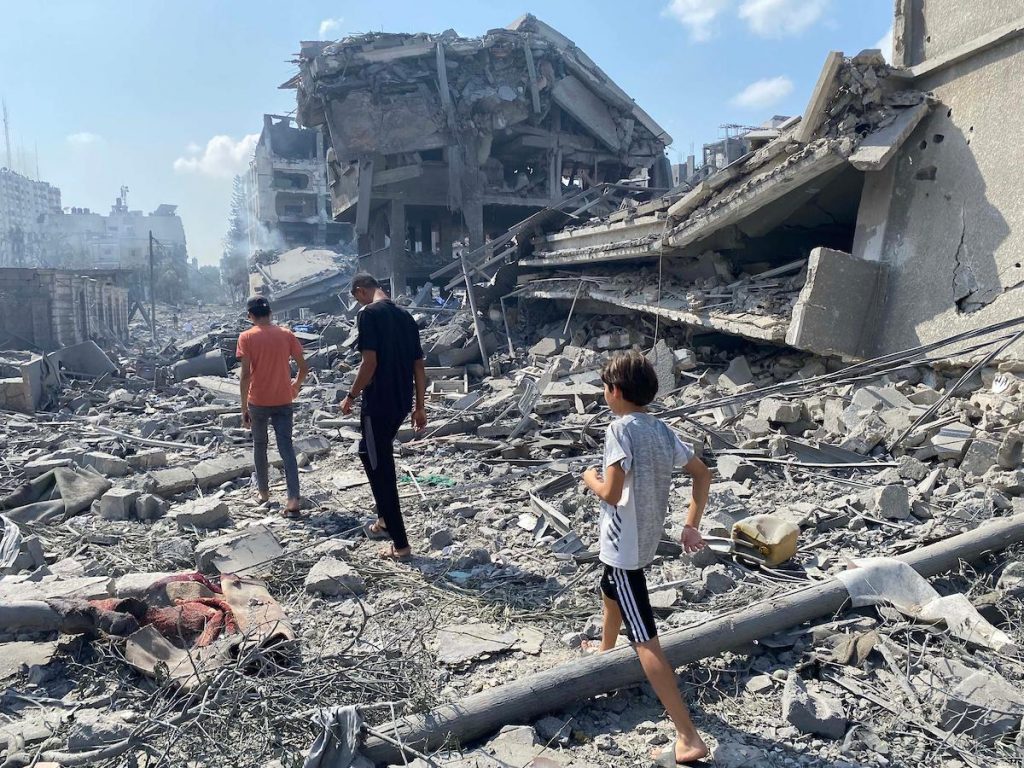
International organizations, including the Red Cross and UNICEF, have called for safe corridors to allow the delivery of humanitarian aid. There are growing fears of a humanitarian catastrophe if the conflict continues unabated.
The Path Forward: A Call to Action
The renewed Israel-Hamas conflict is a stark reminder of the region’s fragility and the deep-seated issues that fuel its flames. As rockets fly and bombs fall, the world watches, hoping for a diplomatic breakthrough that can halt the bloodshed. The urgent need for a sustainable resolution has never been clearer. The international community’s concerted efforts to broker peace are crucial, not only to end the current violence but to pave the way for lasting stability and security for both Israelis and Palestinians.
As the conflict rages on, the voices calling for peace grow louder, a beacon of hope amidst the darkness of war. The world must seize this moment to push for a resolution that addresses the core issues and lays the foundation for enduring peace.












